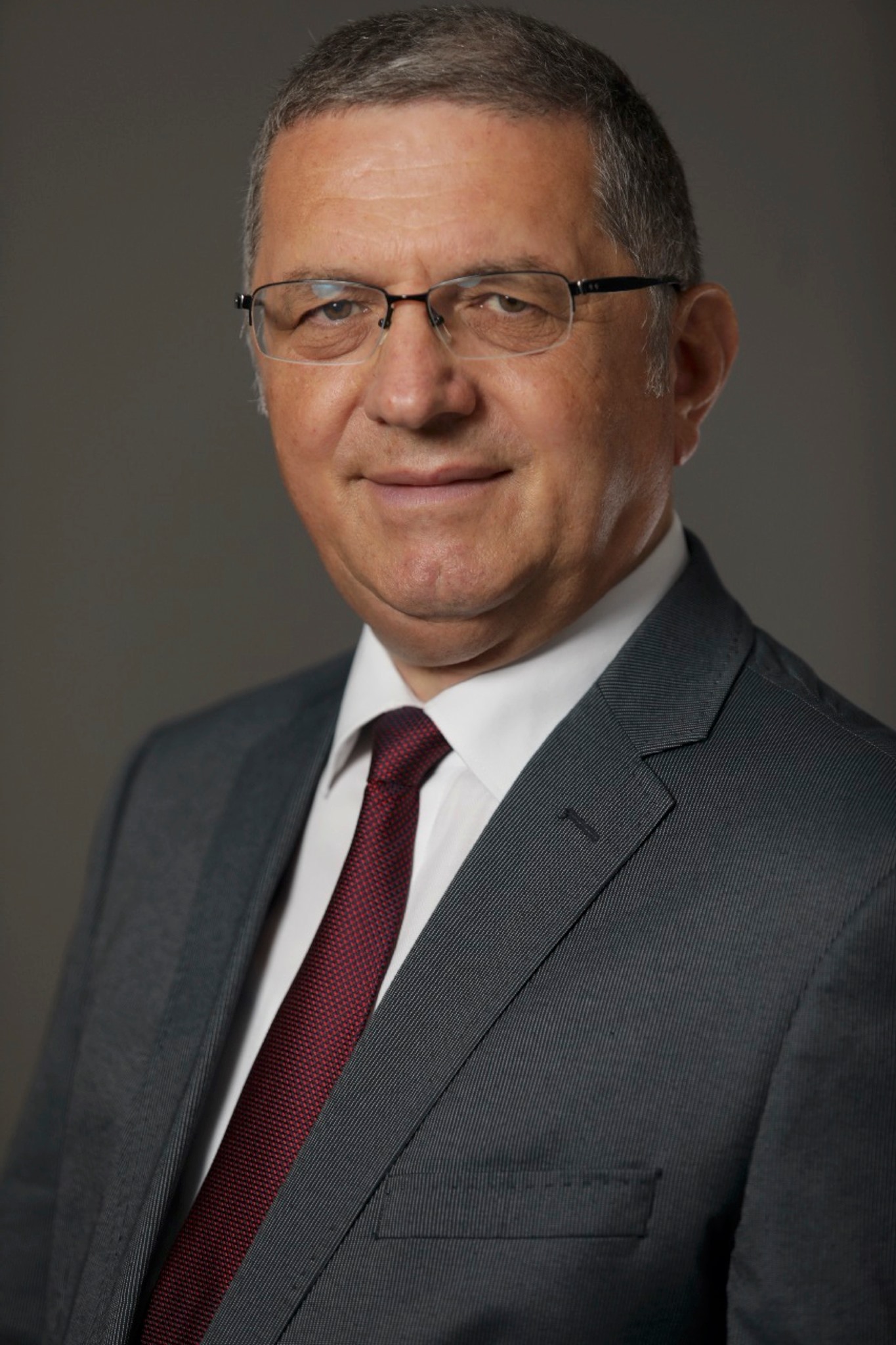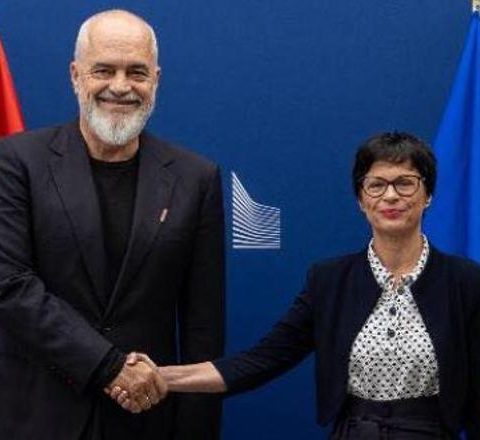By Zef Preçi
What kind of political system are we living in today?
Even though we have a weak state, authoritarian tendencies in governance have become more pronounced, and in a synthesized way this is reflected in the increasing number of MPs of the ruling party from one mandate to the next. Someone might say that this is a civic reflection expressed through voting for good governance, higher welfare and quality of life, the resolution of property issues, employment, healthcare, education, reduction of crime, growth of foreign direct investments, improvement of the business climate, and so on. I would sincerely wish that this were really the case. But the number of Albanians who have left the country over the last 15 years around 800,000 the deterioration of the country’s position in PISA assessments, Albania’s classification by Freedom House as “partly free,” its ranking by the Democracy Index of the Economist Intelligence Unit as a “hybrid regime,” and the 2024 Transparency International report, which places Albania 80th in the world for perceived corruption, as one of the most corrupt countries in Europe, all significantly undermine the rosy panorama created by the government and by most of the mass media that support it.
In other words, it seems as if the virtual Albania carefully engineered by Prime Minister Rama has gained ground over the real Albania of our everyday life. One gets the impression that in Albania the main motivation for fighting corruption stems simply from his desire to remain in power or to secure long-term political survival, and has nothing to do with the daily life of the country’s citizens. This is so true that, in these early winter days when a good part of the territory is either under water or under snow and temperatures have dropped significantly, Prime Minister Rama is busy with his podcasts about “Albania of the next decade,” drawn in bright colors that appear only on screens well paid from taxpayers’ money, while his deputy in government the highest official responsible for civil emergencies faces the ordeal of investigation and criminal trial for suspected abuse of office that enabled the “legal” theft of hundreds of millions of euros from the poor state budget of Albanians. Yet, as the well-known scholar and journalist Elez Biberaj recently underlined, these assessments of Albania “reflect the fact that Albania’s democratic institutions, although they show a reformist rhythm, continue to display structural fragility.” Let us try to shed at least a little light on the anti-corruption policies of the Albanian government, or, to put it differently, why there is no real success story in governmental anti-corruption (excluding here purely documentary aspects such as strategies, participation in and hosting of international conferences and meetings, theatrical speeches full of self-praise, etc., all of them expensively paid by Albanian taxpayers and forming part of the “puzzle” of virtual Albania)…
Reports, analyses and studies, both ours and those of others, teach us that most governmental success stories occur in democratic environments, which is not our case, whereas autocracies that manage to control petty and bureaucratic corruption often leave in place and even further sophisticate the types of corruption that benefit the rulers. This is precisely the most credible conclusion about the state of anti-corruption in our country. Thus, the multi-year investments, starting from around the year 2000, in information technology (notwithstanding not unfounded suspicions of clientelism and political and oligarchic control over this market) have brought about an expansion in the stable use of online public services, which constitutes a valuable achievement, even though at a not insignificant financial cost for the Albanian state. As a result, the greatest achievement of Albanian governments over the past 10–15 years has been the placing under control of petty corruption in public services, such as that involving teachers, doctors, police officers, civil registry employees, municipal clerks, etc. But paradoxically even this achievement remains fragile, since over the same period the overall number of public sector employees has grown by double digits instead of shrinking, while the basic problems of public services such as services related to property, court services, etc. have worsened and in no way can be covered up simply by the significant increase in the use of IT in the daily life of Albanian citizens.
Are we really in the conditions of a “hybrid regime,” as the Democracy Index of the Economist Intelligence Unit classifies us?
For those who do not know, authoritarian regimes are characterized by the fragility or weakening of institutions and procedures of political participation and competition, of fundamental human rights and of the control of power (separation of powers, the role of parliament, elections, political pluralism, etc.), which in democratic countries are essential for the functioning of the system and are consolidated over time, thus becoming characteristics of a democracy. From this perspective, one can easily identify several features that distinguish authoritarian regimes from democratic and totalitarian ones. These include, for example, limited pluralism, in contrast with the largely unrestricted pluralism of democracies and the monism of totalitarian systems. Were not the latest constitutional changes related to the electoral system changes that led to limiting pluralism itself? I believe they were. Another typical feature of authoritarian regimes is restricted political participation and the lack of civic mobilization. For example, in the last elections, low voter turnout testifies to citizens’ lack of trust both toward the government and toward the opposition, but at the same time also to a sort of surrender to a hopeless situation, regardless of government propaganda that endlessly speaks of “achievements and victories,” of Albania 2030, just as people once spoke of “the complete construction of socialist society”…
In the strengthening of authoritarian tendencies we should also note the visible erosion of the system’s legitimacy, a legitimacy which is no longer secured through a unifying and dominant ideology as in democratic countries, but rather through mentalities, the manipulation of emotions and psychological predispositions, and through general values (patriotism, nationalism, modernization, order, etc.).
A visible result of this situation is also the weakening of constitutional and institutional control, as well as the very limited constraints on the head of the executive, alongside a high degree of control exercised by the latter over society and its economic activity a development that one might have expected to bring positive transformations to today’s Albanian society, starting with discouraging the abandonment of the country.
In any case, what I have said above is a personal opinion, and I leave it to the will of each reader to reflect on the type of regime in which we live today in Albania…
What are the main challenges to success in the fight against corruption?
In democratic countries, the success of this fight is closely linked to the legitimate and broad use of tools such as transparency and accountability, as well as institutional checks and balances, which formallyon paper we also have in Albania. But these tools, even though they exist, do not affect the official bearer of political will, the head of the executive. Let us illustrate this with the corruption scandal involving Ms B. Balluku, which is being uncovered step by step by SPAK and the Special Court (GJKKO). Everywhere in the world around us, mere suspicion, let alone the filing of criminal charges, would be sufficient for the resignation of the official in question, for serious analysis within the leadership of the ruling party, and for the assumption of responsibility by the country’s prime minister, including a public apology for the violation of the trust of his voters and taxpayers.
The path being followed by Mr Rama, despite the difficult public position in which he finds himself, by exerting pressure on the judiciary, even on the Constitutional Court as many analysts and observers of developments in the country suspect for a decision that would limit SPAK’s constitutional freedom to investigate senior officials and politicians without restriction, risks blowing up the entire official narrative and the long-repeated pro-SPAK tautology of the ruling party. It also risks enabling dangerous legal initiatives which, in the name of protecting human rights and respecting the separation of powers, would create obstructive mechanisms for SPAK’s activity, in order to protect senior officials suspected of or under investigation for abuse of office, as in the case of Ms Balluku. If this happens, it would constitute a serious danger for keeping corruption alive, and would also encourage predatory behavior by politicians, which even under today’s conditions represents a growing public concern and a serious obstacle to the very process of EU integration.
To be more concrete, today’s corruption situation in Albania is reflected in the absence of functional checks and balances, including in the Parliament of Albania; in the lack of free and fair elections; in governmental control over the media and civil society; and in other phenomena that, in the final analysis, have generated corrupt policies and practices or the favoring of a minority at the expense of the majority of voters.
The evolution of perceptions regarding the success of the fight against corruption
Two decades ago, many of us believed that the decision to engage in corruption was driven by the presence of monopolistic power and administrative discretion, and that it could be prevented through the presence of accountability mechanisms. In other words, there was a formula: Corruption = Monopoly + Discretion – Accountability
(Klitgaard, Controlling Corruption, 1988).
That is, it was widely believed that corruption could be reduced by negatively affecting the incentives of the agent (public official or politician) to engage in corrupt behavior.
During the last decade, scholars have widely demonstrated that the most effective ways to combat corruption require the establishment of checks and balances on the government in order to limit discretionary decision-making and reduce opportunities for rent-seeking. This means that, for the real success of this fight in Albania, contextual factors must be taken into account, as well as the need to involve ordinary citizens so that they can play their legitimate role in holding the government to account. The current formula could be expressed as follows: Corruption = Constraints (Legal + Normative) – Opportunities (Discretion of power + Material resources)
(Mungiu-Pippidi, 2015).
According to this formula, the level of corruption in Albania is the result of the equilibrium created by the interaction between opportunities to engage in corruption—namely discretion (privileged access to power/unrestricted power for individuals loyal to the “Number One” of the government; monopolistic practices in markets; bureaucracy and frequent changes in laws affecting business, etc.) and financial/material resources (foreign aid; discretion in decision-making; budget lines concentrated in few hands; natural resources distributed in a clientelist manner; employment in the public sector political patronage; clientelist public contracting, etc.) and the constraints, which can be legal (laws and regulations) or normative (media, civil society, public opinion, voter information, etc.).
Can the fight against corruption in Albania succeed?
Despite relativizing tendencies and the glorification of strategic documents, participation in international activities or the sponsored participation of EU officials in public events in Albania, I believe these are not sufficient to reduce corruption in Albania. The country’s socio-economic status and the serious distortions of democratic processes dictate the need for more realistic policies that include greater efforts to implement the existing legal framework and especially to reduce political pressure and control over law-enforcement agencies, and to provide unconditional support to SPAK, as well as a more active role for civil society, the business community, etc., in raising awareness and mobilizing citizens in democratic processes, starting with participation in elections.
If a healthy and responsible public debate were to develop around this phenomenon and the immediate risks of state capture by oligarchy, big business lobbies and segments of organized crime far from throwing accusations into the air or engaging in sponsored defense of politicians already in the net of the reformed justice system then the need might arise for new anti-corruption legal amendments. In this sense, I think it is necessary to create a broad public consensus to treat corruption as a matter of national security, rejecting current efforts for example through the new Penal Code to decriminalize the criminal offense of abuse of office, which in essence remains the main key that leads to corrupt affairs, illicit enrichment, and structured criminal groups.
Based on ongoing anti-corruption cases involving high-level officials that SPAK has been investigating in recent years, one cannot fail to notice the relatively low sentences for corruption-related offenses; the visible weaknesses of the self-governing bodies of the judiciary and the possibilities for channeling powerful political influence through them; and the insufficient involvement of other state agencies such as the Ombudsman, the High Inspectorate of Declaration and Audit of Assets and Conflict of Interest (ILDKPI), the Supreme State Audit (DPTT), the President of the Republic, sectoral regulatory bodies, and the academic community, etc. Despite this, as the experience of successful countries in the fight against corruption shows, “political will” is often mentioned as a key determinant for the success of this fight.
The measures that the government of Prime Minister Rama has undertaken against petty bribery and other forms of corruption involving low-level public officials, in my view, constitute an initial basis that should not be ignored for addressing grand corruption by public officials, for tackling clientelist decision-making in the main public spending institutions of the “5D” type (special private enterprises created by public officials who decide on budget funds), so that citizens can see a real decrease in the cost of corruption, proper functioning of the system of checks and balances, particularly in terms of increasing government transparency and accountability, and also the creation of conditions for the political opposition to make its own contribution to strengthening the integrity of the system as a whole and, above all, to respecting the separation of powers in accordance with the Constitution and the good practices of OECD countries. Perhaps in this way the country will be able to align the proclaimed pace of integration reforms with the consolidation of the democratic foundations of the state, gradually moving away, step by step, from the populist authoritarianism of today.










